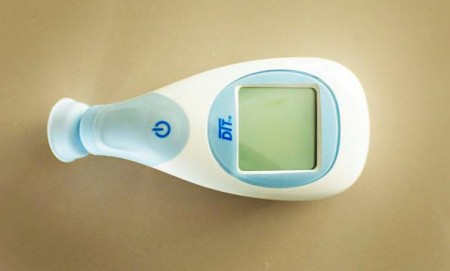
Photo by Rebecca Tredway Photography
A big thank you to Dr. Mark McColl for sharing his expertise for this series of guest posts.
When should a parent keep a child home from school or out of the church nursery or daycare?
Why are there times when parents get the same illnesses as their children and times when they seem to avoid it?
The heart of these questions centers on the contagiousness of our child’s infections. In most circumstances, our children are very contagious prior to our recognition that they are ill at all. For many viruses the most contagious period is the three days prior to a fever. That being said, a fever is a fair indicator of when parents should keep their children home from social events. Whether an infection needs therapy or not, once the fever has resolved and the child is feeling better that seems like a fine time to get back to normal life. Even without a fever though some children feel ill enough to warrant staying home. I usually tell folks to wait 24 hours after becoming symptom free before reengaging in social functions. It’s not a scientific rule but rather one that makes good common sense to me. For colds I suggest being fever free and being able to control their spittle (cover a cough, wipe their own nose, and wash their hands, etc.).
One note of caution is what to do if you’ve been exposed to someone with a serious infection. The incubation period, or the time it takes after contracting the infection and the onset of symptoms, can be variable. For influenza it averages only two days but for measles it is 21 days. In the San Diego measles outbreak in 2008, a 7 year old unvaccinated boy returned from a family trip to Switzerland having unknowingly contracted the disease. He infected 11 other unvaccinated children while exposing over 800 to the infectious agent. Forty-eight people were quarantined for having been exposed and were required to spend 21 days under house arrest awaiting the outbreak of symptoms.
Parents and children will share their minor infections back and forth frequently. Having been exposed to many of the common viruses several times already we often don’t manifest the same symptoms as our children. Some of the time we don’t have any symptoms to speak of at all and other times they are different. Adenoviral infections for instance will sometimes cause upper respiratory symptoms in one person and diarrhea in another. Respiratory Syncytial Virus (RSV) causes a dramatic infection in the lower airways of infants but an astoundingly bad head cold in adults. We don’t generally get the same infection over and over as our immune system usually protects us after recovering from the first exposure. Many viral infections have numerous strains, any number of which can cause symptoms. Adenovirus alone has 57 distinct strains. Good hand washing, covering a cough, and common sense are invaluable in helping quell the spread of our infections to our friends and neighbors.
